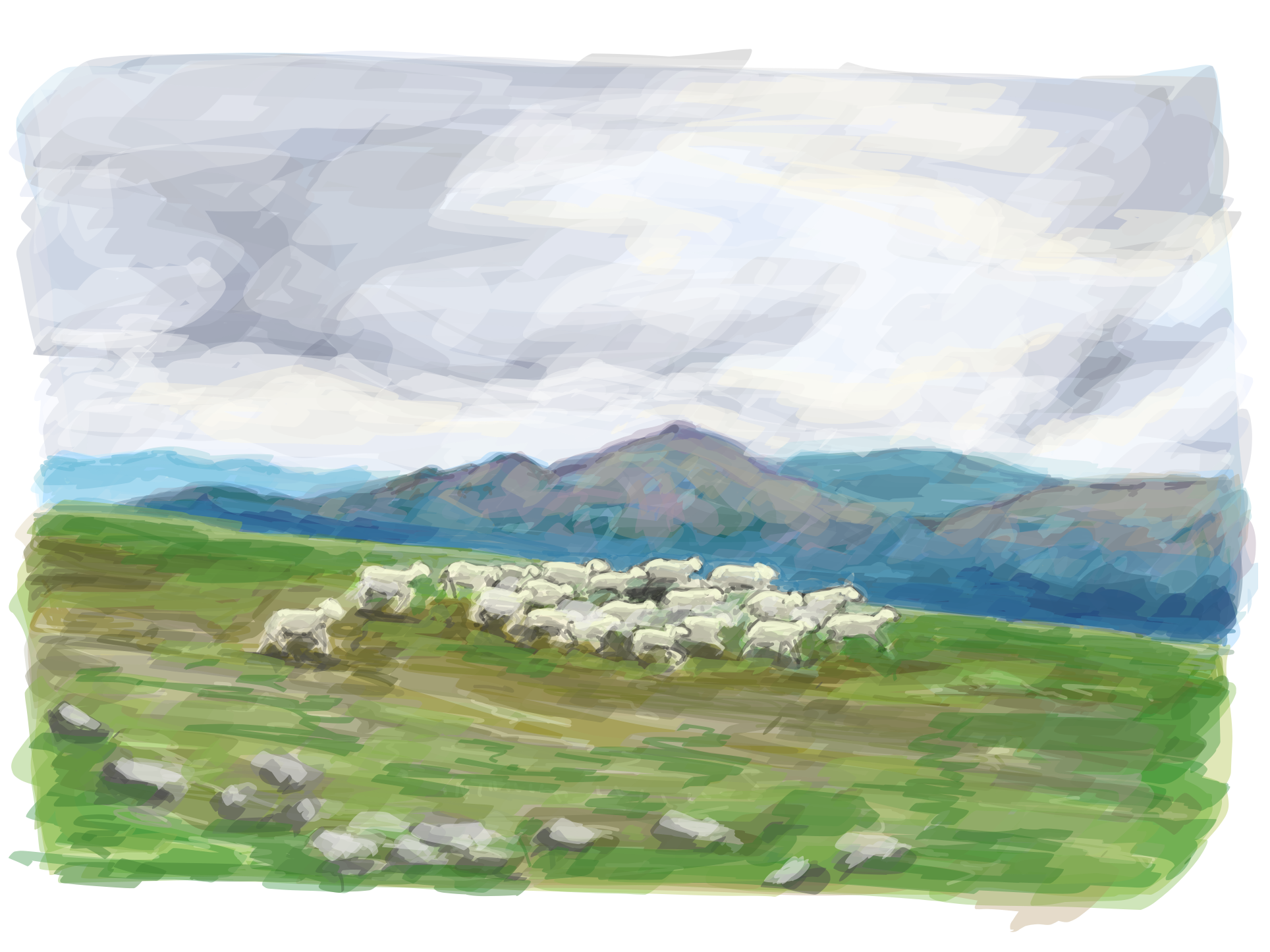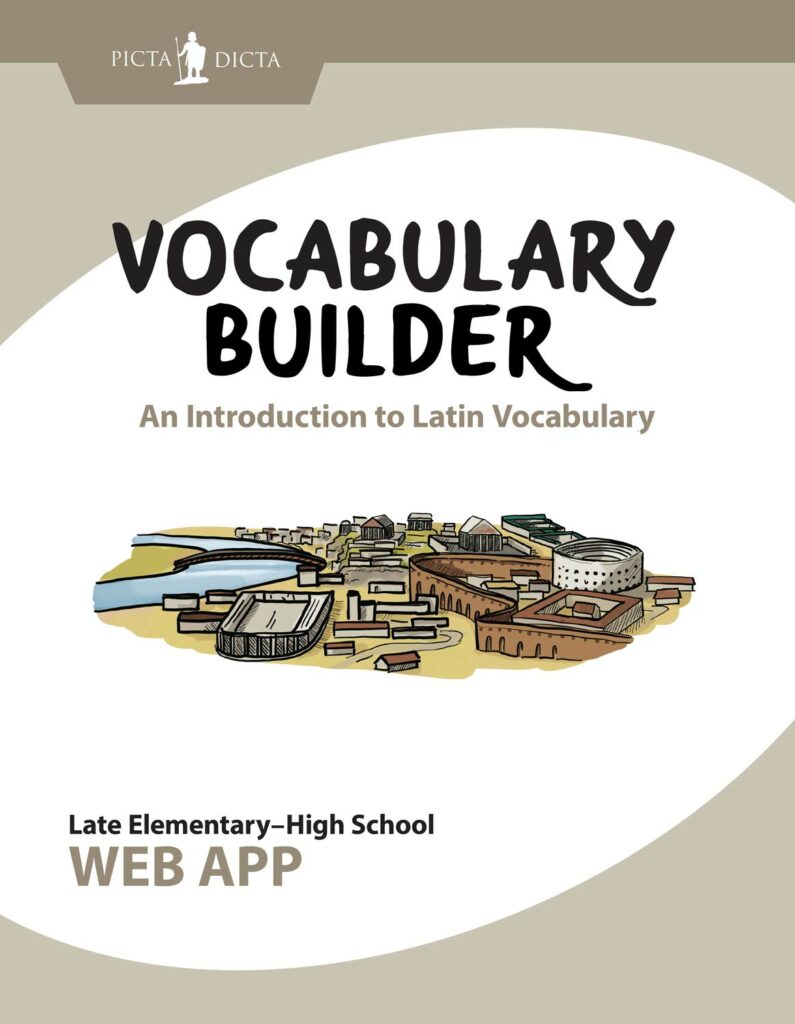
CLASSICAL LANGUAGES | Grades 3-College
Latin
Latin Courses and Resources
Latin Primer Series
Picta Dicta Latin Primer is a first introduction to reading Latin suitable for either elementary or secondary students. It is a multimedia course, not only with readings and workbook exercises—but videos and app-based exercises as well. Students learn through all four language pathways (reading, writing, speaking, and hearing), which makes it both more enjoyable for them to learn and easier to retain.
-
Latin Primer I Homeschool BundlePrice range: $142.00 through $260.00
-
Latin Primer II Homeschool BundlePrice range: $142.00 through $260.00
NEW RELEASE: LATIN GRAMMAR III
-
Latin Grammar III Homeschool BundlePrice range: $120.00 through $238.00
Latin Grammar Series
Picta Dicta Latin Grammar is a hybrid digital-print introduction to Latin designed for the secondary level or beyond. Students first learn vocabulary, morphology, and syntax through thousands of illustrated cartoons. Then, they practice simple Latin composition, grammatical analysis, and reading in a physical workbook. The readings in this course are all original compositions that are simultaneously humorous and foundational for students preparing to read harder and more serious Latin texts.
Latin Readers
Latin Readers Series
The Picta Dicta Latin Reader series is a collection of grammar-level-based Latin readers suitable for students that are working through the Latin Primer Series or another Latin grammar curriculum. Each reader comes with a complete vocabulary and Picta Dicta’s app-based (not yet available for every reader) vocabulary and grammar exercises.

Puer et Monstrum
Puer et Monstrum (“The Boy and the Monster”) is a Latin reader designed for beginning Latin students that have just completed Picta Dicta Latin Primer (vol. 1). Since these stories introduce no new grammatical forms and very few new vocabulary words, they provide a fun and easy way to strengthen concepts and vocabulary the students have just learned before going on to new material.
Fabulae Simplices
Fabellae Simplices (“Simple Stories”) by Joseph and Lia Roberts is a basic Latin reader with twelve stories—specifically designed for beginning Latin students that have just completed Picta Dicta Latin Primer (vol. 1). Since these stories introduce no new grammatical forms and very few new vocabulary words, they provide a fun and easy way to strengthen concepts and vocabulary the students have just learned before going on to new material.
Mustelae Piratae
Mustelae Piratae (“The Weasel Pirates”) is a level 1½ Latin reader, a 14-chapter novel about a weasel decides to try his hand at piracy. This reader is perfect for beginning Latin students that have just completed one half Picta Dicta Latin Primer (vol. 2). Since these stories introduce few new grammatical forms and vocabulary words, they provide a fun and easy way to strengthen concepts and vocabulary the students have just learned before going on to new material.
Marcus Mirandus
Marcus Mirandus (“Marcus the Odd”) by Matthew Frazer is a short novel set in the 19th century about a boy named Marcus who has delusions of grandeur. These stories are appropriate for students who have worked at least halfway through Picta Dicta Latin Primer (vol. 2) and have completed the classroom grammar lessons on verbs. Since these stories introduce no new grammatical forms and few new vocabulary words, students are able to quickly understand and enjoy these stories while reinforcing or reviewing what they have already learned.
Marcus Captus
Marcus Captus (“Marcus Captured”) is a level-2½ Latin reader
and the second half of a novel about a boy named Marcus with
delusions of grandeur set in the 19th-century. At the end of the
first half of the story, Marcus Mirandus, Marcus’ underdeveloped
instinct for self-preservation leads him to an abandoned tower. In
this volume, he initiates a series of events that quickly become
very serious.
Fabulae Phaedri
Fabulae Phaedri (“Phaedrus’ Fables”) is a Latin student edition of select fables written by the freed Roman slave Phaedrus in the 1st Century AD. These fables had originally been written in Greek and attributed to the legendary Athenian slave Aesop, who is said to have used animal fables as a kind of secret language to speak his mind safely while under the watchful eye of his masters. Phaedrus, however, was the first to render them into verse, and it is Phaedrus’ Latin edition that was used extensively throughout the Middle Ages and Renaissance and that defined Aesop’s fables as we still think of them today.
Vergilii Aeneidos, Liber V
Vergilii Aeneidos Liber Quintus (“Book Five of Vergil’s Aeneid”) is a Latin student edition of selections from Book Five of Vergil’s Aeneid. Vergil is the most famous of the Roman poets and arguably one of the best poets to have written in any language. His largest work, the Aeneid, is an epic poem written in dactylic hexameter that tells of the hero Aeneas, the son of Venus and the mortal Anchises, and his flight from Troy to Italy with a group of Trojan refugees. This story held particular importance for the Romans of Vergil’s day, as they believed that the descendants of Aeneas and his companions had eventually founded the city of Rome.
Metamorphoses Apuleii: Delira Aniculae
Metamorphoses Apuleii: Delira Aniculae (“The Ravings of a Little Old Woman”) is a Latin student edition of one major selection from Lucius Apuleius Madaurensis’ Metamorphoses. Apuleius himself was a famous rhetorician in the 2nd-century AD and produced a number of works on various subjects. His most influential work is without a doubt his Milesian tale in eleven books, the Metamorphoses, which is generally considered to be the oldest example of a novel that has survived to this day in its entirety. This work has had a profound influence on fiction produced in Western literature in general and on signifi cant authors, such as Boccaccio, Chaucer, Jacob and Wilhelm Grimm, Andrew Lang, and C. S. Lewis.
Metamorphoses Ovidii: Loci Septem Egregii
Metamorphoses Ovidii: Loci Septem Egregii is a Latin student edition of selections from Ovid’s Metamorphoses (“Transformations”). Publius Ovidius Naso (43 B.C. – A.D. 17), known in English simply as Ovid, is one of the greatest of the Roman poets. His largest and most infl uential work, the Metamorphoses, which comprises 15 books and over 12,000 lines of dactylic hexameter poetry, is not only a veritable encyclopedia of classical mythology, but also a masterful epic poem that has had a profound impact on the Western literary tradition, including signifi cant authors such as Dante, Boccaccio, Chaucer, and Shakespeare. This Latin edition is designed for highly advanced Latin students and, as such, contains no English translation, defi nitions, summaries, or interpretations. Instead, it provides facing-page lexical, grammatical, and contextual prompts along with a Latin-Latin dictionary at the end of the book. Included are seven of the best and most beloved stories from the Metamorphoses: “Daphne et Apollo,” “Iuppiter et Io,” “Phaethon” (selections), “Echo et Narcissus,” “Pyramus et Thisbe,” “Latona,” and “Pygmalion.”
Picta Dicta Vocabulary Courses
Natural World
Picta Dicta – Natural World is especially well-suited for elementary-age students, and focuses on a specific and important set of vocabulary—the natural world. Students learn the English and Latin for over 400 nouns from the natural world to establish an unparalleled foundation for later study in Latin, English literature, foreign languages, history, and the sciences.

Vocab Builder
Picta Dicta – Vocabulary Builder is geared towards Jr. High, high school, and college students, and focuses on general reading vocabulary including verbs, adjectives, prepositions, and nouns for over 1,000 Latin words and concepts. It is designed for students seeking proficiency in reading Latin. It uses Multi-dimensional learning that provides students with a deeper understanding of words: pictures, sounds, context, definitions, translations, lexical information, and more.
Ancient World
Picta Dicta – Ancient World is especially well-suited for elementary or junior high students and focuses on vocabulary and concepts from the ancient world. They learn the English and Latin for over 500 concepts in ancient history to establish an unparalleled foundation for later study in Latin, English literature, foreign languages, history, and the sciences.
The Case for Classical Languages
Presented by Tim Griffith, creator of Picta Dicta. This is the best hour you will ever spend on “why Latin?”
Visual Latin and Word Up!
Word Up!
Dwane Thomas of Visual Latin fame stars in a zany new show teaching Latin and Greek roots, as well as hundreds of English words. Utilizing a new approach to learning, WordUp! seriously expands a student’s grasp of the vocabulary used in literature, science, and standardized tests.
Visual Latin
Visual Latin 1 & 2
Visual Latin lessons pair three videos with worksheets and online flashcards to guide students from grammar concepts, to practice sentences, to reading in Latin. Kids everywhere love it! Dwane Thomas is a Latin magician: he’s spent over 15 years turning students into Latin speakers and readers. His secret? He’s one of those unique teachers who makes learning difficult subjects fun and enjoyable. Thousands of children have already been transformed through his magic: let yours be next.
-
Visual Latin 1Price range: $140.00 through $170.00
-
Visual Latin 2Price range: $140.00 through $170.00
Also check out our Latin courses at Kepler Education!
















